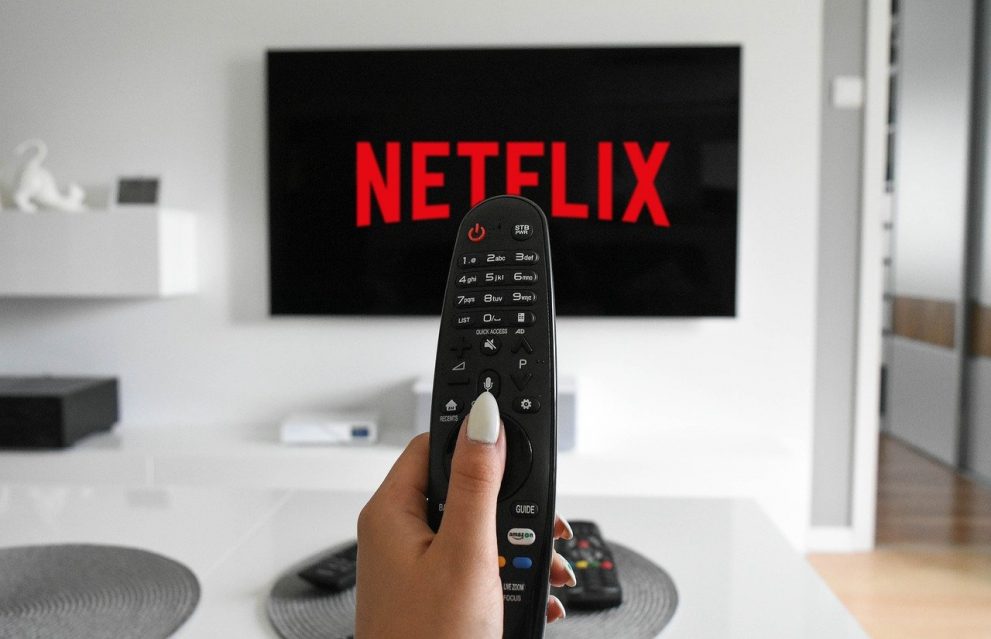
Shares of Netflix (Netflix Stock Quote, Charts, News, Analysts, Financials NASDAQ:NFLX) are down an incredible 73 per cent over the past half-year, which for those investors watching the stock puts it at levels not seen since 2017 — that’s a five-year period where the company went through tremendous growth, firming up its position as not only the dominant player in the streaming world but the standard-bearer on content creation in the sector.
The question, then, is whether the market has gone too far in punishing Netflix, a company whose annual revenue is now more than double what it was in 2017. In other words, is NFLX a buy at these levels?
Not necessarily, says portfolio manager Paul Harris who points to one issue that puts Netflix’s future growth in doubt, especially when held up against its streaming peers like Disney and HBO.
“It’s a good question. The difficult part for me on that is that I think Netflix grew very rapidly due to COVID because streaming became very important — and let’s be very clear, streaming is here to stay for the long term and that’s not going away — I think the trouble with Netflix is that they have to spend a lot of their money on building content while many of the other players already have a lot of content,” said Harris, partner at Harris Douglas Asset Management, who spoke on BNN Bloomberg on Tuesday.
“So, Netflix has always been behind the eight ball and they have to spend a lot more money to build content but they also don’t have a strong library of content which many of these other players do that are in the streaming business,” Harris said.
On that count, Disney is the prime example, where its kid-friendly movies, specials and TV shows have stood the test of time for generations, bringing a ‘right-of-passage’ quality to its content where all kids of a certain age (and thus all parents footing the bill) are going to want Disney and Pixar. Add to that the Marvel conglomerate and Disney’s Star content hub and you’ve got a veritable mountain of almost age-less content that will keep viewers coming back year-after-year.
Granted, Netflix is not without its gems including in-house critically acclaimed movies and TV shows — think Oscar winners Roma and The Power of the Dog and fan favourite shows like Stranger Things and Squid Game — and the company is also clearly the winner in terms of sheer bulk of content released every year. But there’s an obvious familiarity and depth to the Disney brand and to the HBO brand that you don’t have with Netflix, where content has been established brick by brick over the decades and clearly contrasts with what’s on tap from a relative newcomer like Netflix.
Harris says the terrain in streaming content providers have evolved over the years and the rise in competition will continue to chip away at Netflix’s lead.
“Streaming is not going away [but] five years ago, four years ago, three years ago Netflix was really just competing with a very few streaming services. Now they’re basically competing with everybody, and so people have to really make up their minds where they want to spend their money on a streaming site and I think that’s the difficult part they’re going to have,” he said.
“Lastly, Netflix is coming out with a model for advertising, which, to me was the beauty of streaming in that there’s no advertising. I don’t think I’d want to have something like that but it may suit some of their audience,” Harris said.
Harris said Disney is more his pick in the streaming space over Netflix.
“I think you can play another streaming service, get streaming [exposure] through another company that’s actually in better financial shape and can actually have other parts of the businesses that grow really well — I like Disney because of all the content they have,” he said.
Last month, Netflix’s share price tumbled more than 25 per cent after an earnings report which showed a loss of 200,000 subscribers over the first quarter of 2022. The company chalked the loss up to the suspension of its service in Russia, the prevailing bug in the streaming system of password sharing by subscribers and the rise in competition in the space.
“Our revenue growth has slowed considerably,” said Netflix in a letter to shareholders. “Streaming is winning over linear, as we predicted, and Netflix titles are very popular globally. However, our relatively high household penetration — when including the large number of households sharing accounts — combined with competition, is creating revenue growth headwinds.”
Netflix ended the quarter with revenue of $7.87 billion and EPS of $3.53 per share. Analysts had been forecasting revenue of $7.93 billion and EPS of $2.89 per share.





 Share
Share Tweet
Tweet Share
Share




Comment